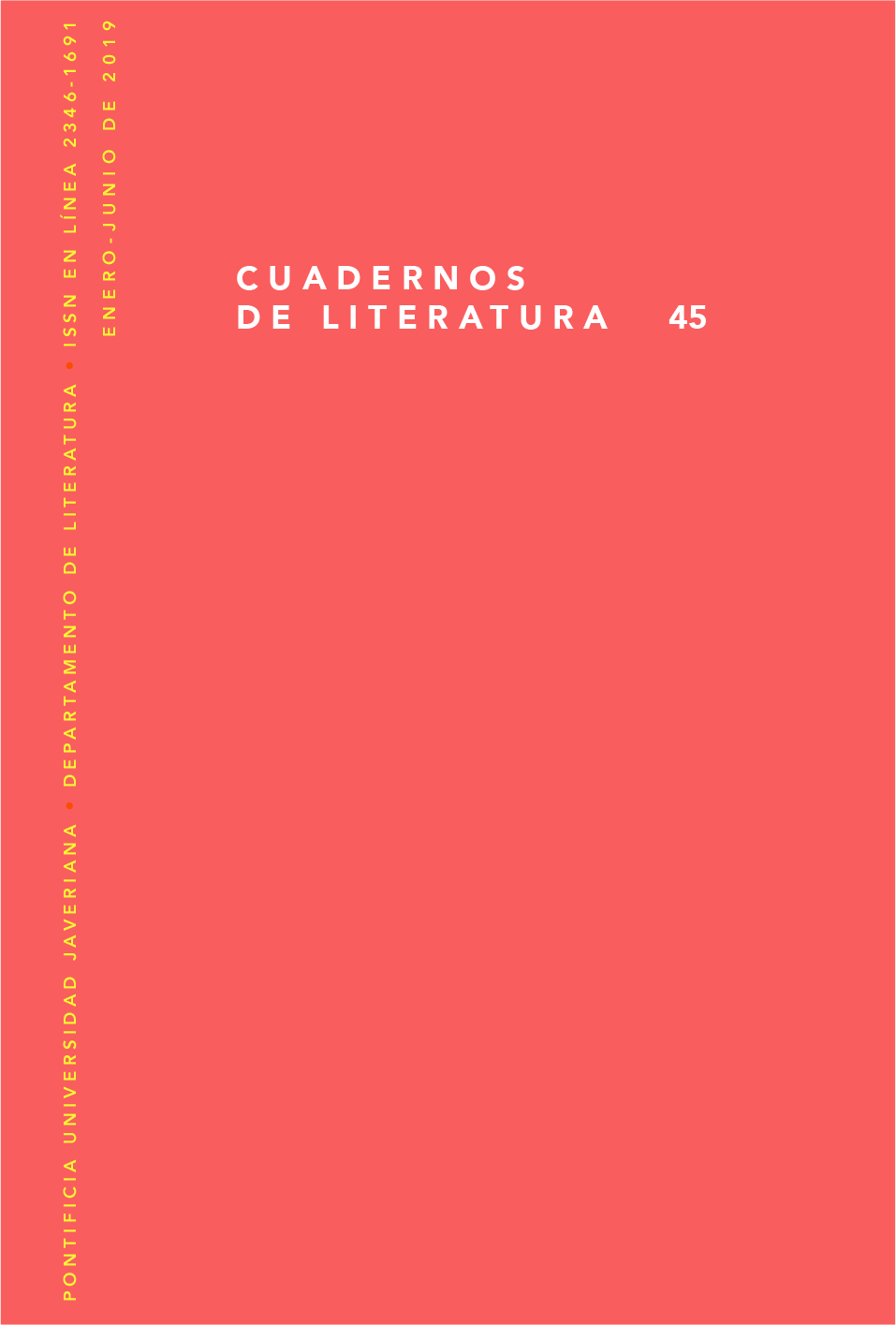Abstract
The article argues that in the novel We the Animals (2011), written by Justin Torres, animal life unveils the artificial borders that preserve the reign of the human, and disarticulates its “natural” alterity regarding the biopolitical regulations that control and define human life. It seeks to demonstrate how the characters’ family relationships express a range of human emotions close to animality. These emotions compel us to challenge the hegemony of the registers and technologies that have normalized human nature as the epitome of life, and that have reinforced its representation through the white male subject as origin and center of modern thought and society. The analysis focuses on two aspects: the connection of the animal to mestizaje and its association to sexuality. The goal of the analysis is exploring how this political openness towards this post-anthropomorphic and post-human place could perhaps be considered a political alternative to reflect on the bodies and postcolonial, border, mestiza and diasporic subjectivities that inhabit and define what has come to be known as the Caribbean.
Cragnolini, Mónica B. Extraños animales. Filosofía y animalidad en el pensar contemporáneo. Buenos Aires: Prometeo Libros, 2016. Impreso.
Esposito, Roberto. Communitas. Origen y destino de la comunidad. Trad. Carlo Rodolfo Molinari Marotto. Buenos Aires: Amorrortu Editores, 2003. Impreso.
Fernández Retamar, Roberto. “Calibán”. Todo Calibán. Buenos Aires: Consejo Latinoamericano de Ciencias Sociales (CLACSO), 2004. 19-81. Impreso.
Giorgi, Gabriel. Formas comunes. Animalidad, cultura, biopolítica. Buenos Aires: Eterna Cadencia, 2014. Impreso.
Giorgi, Gabriel y Fermín Rodríguez. “Prólogo”. Ensayos sobre biopolítica. Excesos de vida. Comps. Gabriel Giorgi y Fermín Rodríguez. Buenos Aires: Paidós, 2007. 9-34. Impreso.
Jáuregui, Carlos A. Canibalia. Canibalismo, calibanismo, antropofagia cultural y consumo en América Latina. Madrid: Iberoamericana Vervuert, 2008. Impreso.
Massumi, Brian. What Animals Teach Us about Politics. Durham - London: Duke UP., 2014. Impreso.
Sánchez-Prado, Ignacio M. “El giro (post)humanista. A manera de introducción”. Revista de Crítica Literaria Latinoamericana 34.68 (2008): 7-18. Impreso
Torres, Justin. “Introduction. Don’t Get Used to It: Queer Literature in a Time of Triumph”. Emerge: 2015 Lambda Literary Fellows Anthology. Ed. Marissa JohnsonValenzuela. Lambda Literary, 2016. Impreso.
Torres, Justin. We the Animals. London: Granta, 2011. Impreso.
Torres-Saillant, Silvio. An Intellectual History of the Caribbean. New York: Palgrave Macmillan, 2006. Impreso.
Wynter, Sylvia. “‘No Humans Involved’: An Open Letter to My Colleagues”. Forum N.H.I. Knowledge for the 21st Century 1.1 (Fall 1994): 42-73. Impreso.
Cuadernos de Literatura is registered under a Creative Commons Attribution 4.0 International Public License. Thus, this work may be reproduced, distributed, and publicly shared in digital format, as long as the names of the authors and Pontificia Universidad Javeriana are acknowledged. Others are allowed to quote, adapt, transform, auto-archive, republish, and create based on this material, for any purpose (even commercial ones), provided the authorship is duly acknowledged, a link to the original work is provided, and it is specified if changes have been made. Pontificia Universidad Javeriana does not hold the rights of published works and the authors are solely responsible for the contents of their works; they keep the moral, intellectual, privacy, and publicity rights.
Approving the intervention of the work (review, copy-editing, translation, layout) and the following outreach, are granted through an use license and not through an assignment of rights. This means the journal and Pontificia Universidad Javeriana cannot be held responsible for any ethical malpractice by the authors. As a consequence of the protection granted by the use license, the journal is not required to publish recantations or modify information already published, unless the errata stems from the editorial management process. Publishing contents in this journal does not generate royalties for contributors.


